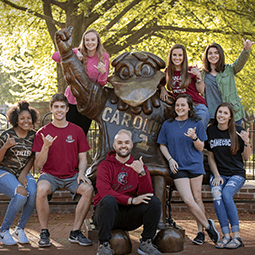-

Undergraduate
Apply for Undergraduate admissions
-

Graduate School
Apply for Graduate admissions
-

Study
Learn more about the degrees
Beyond the Classroom
History M.A. and Ph.D. students have program-specific study abroad and internship opportunities, and students at all levels can build their network by going Beyond the Classroom. Choose from student organizations, internships and study abroad to enrich your academic experience and live your passion.
